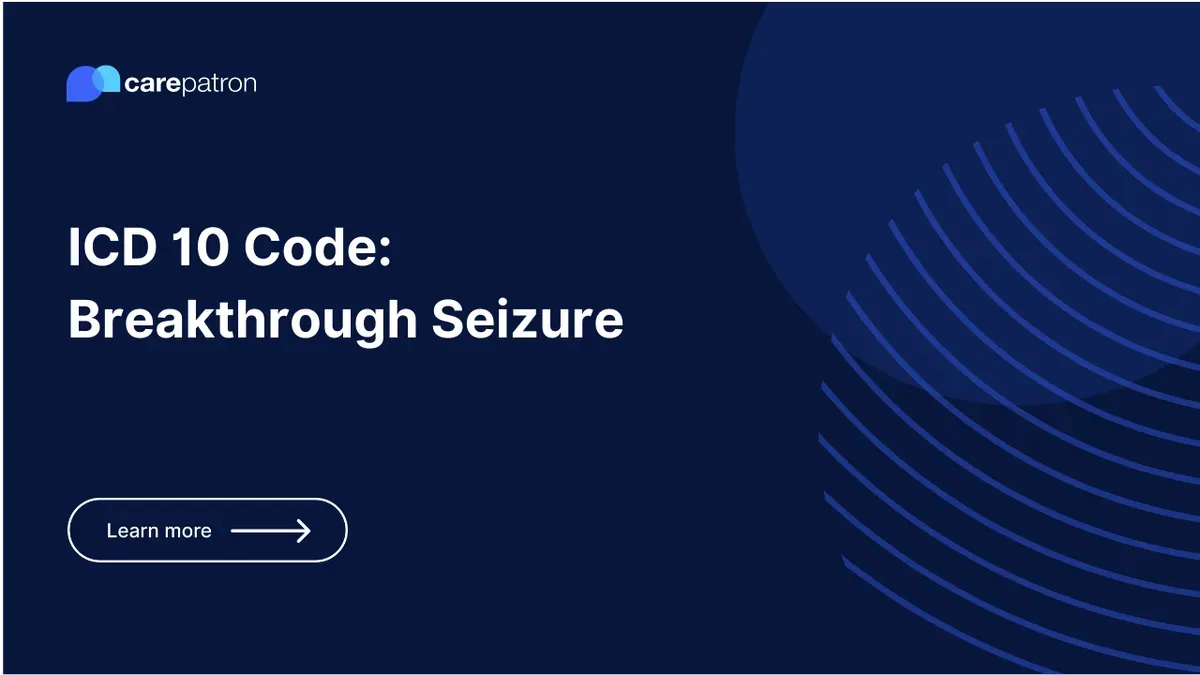
Breakthrough Seizure ICD-10-CM Codes
Discover the ICD-10-CM codes for breakthrough seizures, along with insights into clinical data, billability, related terms, and FAQs.
Use Code
Commonly asked questions
A breakthrough seizure can occur for various reasons, including missing medication doses, lack of sleep, stress, illness, or exposure to certain trigger foods or substances.
Not necessarily. While frequent breakthrough seizures might indicate that your current treatment regimen is not as effective as it should be, a single breakthrough seizure doesn't necessarily mean your medication has stopped working.
The treatment of breakthrough seizures often involves adjusting the current medication regimen. However, the exact approach will depend on the individual's circumstances, including the frequency and severity of their seizures, overall health, and epilepsy.
EHR and practice management software
Get started for free
*No credit card required
Free
$0/usd
Unlimited clients
Telehealth
1GB of storage
Client portal text
Automated billing and online payments
